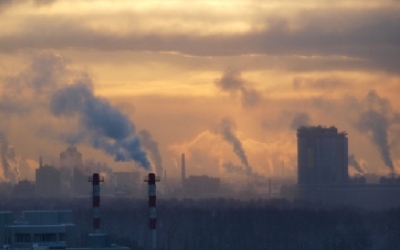Sooty Air Pollution May Lower Your Baby’s Birth Weight
Sooty air pollution doesn’t only put your wellness at risk, but the wellbeing of your unborn baby. This is according to collected data on more than three million births at 14 locations in the UK, north and south America, Asia and Australia, which found that sooty air pollution in towns and cities increases the chances of women giving birth to small babies.
Environmental wellness experts note that the small effect found in the study is still statistically significant, as it could have an important impact on child health at national population scales. Underweight babies, or babies who weigh less than 2.5kgs/5lbs 8oz, face an increased risk of dying in infancy, as well as chronic poor health and impaired mental development. The tiny sooty carbon particles focused on in the study, called PM10s and even smaller PM2.5s, are known to be linked to heart and lung problems and early death.
According to Professor Tanja Pless-Mulloli, who led the UK arm of the study at the Newcastle University, ‘As air pollution increases we can see that more babies are smaller at birth, which in turn puts them at risk of poor health later in life. These microscopic particles, five times smaller than the width of a human hair, are part of the air we breathe every day. What we have shown definitively is that these levels are already having an effect on pregnant mothers.’ The findings, which were published in the journal Environmental Health Perspectives, revealed that for PM10s, this raised the chances of having a low birth-weight baby by 0.03%, and a much larger 10% risk increase was seen in the case of PM2.5s.
Pless-Mulloli explained, ‘The particles which are affecting pregnant mothers mainly come from the burning of fossil fuels. In the past the culprit may have been coal fires, now it is primarily vehicle fumes. Currently in some parts of London we see around 40 units of particulate air pollution and in Newcastle it is around 20 units but going back to the 1960s we saw around 700 units of air pollution. While much has been done to improve air quality, this study shows we can’t be complacent as we’ve shown that clean air is really important for the health of our newborns.’
Dr Tony Fletcher, senior lecturer in environmental epidemiology at the London School of Hygiene and Tropical Medicine, commented, ‘This new study is very helpful in establishing another health impact of air pollution. Because the average effect is quite small, it needs enormous multi-country studies such as these to quantify the effect. The study is of excellent quality and the conclusions are clear: while the average effect on each baby is small and so should not alarm individual prospective parents, for the whole population these small risks add up across millions of people – another reason for London and other large cities to force traffic-related pollution down to lower levels.’


Comments are closed.